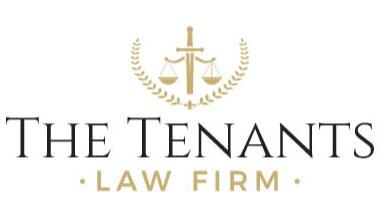Common Lease Fees Clauses and Limitations
Late Fees
What are late fees?
Late fees are clauses in lease agreements where landlords might stipulate that tenants must pay an additional fee if rent is even one day late.
What late fees are allowed in a lease agreement?
California law presumes these late fees, which are called liquidated damages, to be presumed invalid unless a landlord can prove otherwise.
To do so, a landlord must show that it would be difficult to determine how much harm they suffer from late rent, and attempt to calculate this amount before the tenant signed the lease. The estimation must also be approximate to the actual harm suffered.
Cleaning Fees
While landlords are allowed to charge a cleaning fee to return the unit to the same level of cleanliness that it was at the beginning of the lease, it is more common for it to be included in the security deposit.
Security deposits
What are rent security deposits?
Rent security deposits are a sum of money held in trust as initial payment to the landlord to insure the landlord against potential default by the tenant or against lease violations. The funds will be held for the duration of the lease. At the end of the lease, the landlord can keep the money to cover extraordinary damage to the property, or they must give the money back if such damage does not exist.
How much can a landlord charge as a rent security deposit?
California Civil Code §1950.5 is what regulates security deposits for tenants. The security deposit cannot exceed two month’s rent if the apartment is unfurnished. If the unit is furnished, the deposit can be as high as three month’s rent.
Is a rent security deposit ever “non-refundable?”
The civil code prohibits any lease or rental agreement from portraying a security deposit as non-refundable, as there is no such thing.
Early Lease Termination Fees
Lease clauses that force a tenant to pay a set fee for breaking a lease early are illegal in California. A landlord can recover only the actual damages suffered because of the lease termination.
California does not allow landlords to charge set amounts for breaking the lease agreement. Damages can be recovered from the tenant if the lease is broken early, as a fee, only after it has been broken and if it is the actual amount of damages suffered as a result.
While violation of a lease agreement may result in eviction, it should not result in a huge fee that is disproportionate to the actual damages suffered.
Unauthorized Pet Fees
In California, the issue of a property’s pet policy is largely under the landlord’s discretion. As with other damages, landlords cannot seek exorbitant fees that are grossly larger than the actual damages suffered from the policy violation.
Unauthorized pets may be a violation of the lease agreement, which could result in eviction if there are repeated violations, but the fees charged for that violation must be in proportion with actual damages suffered.

